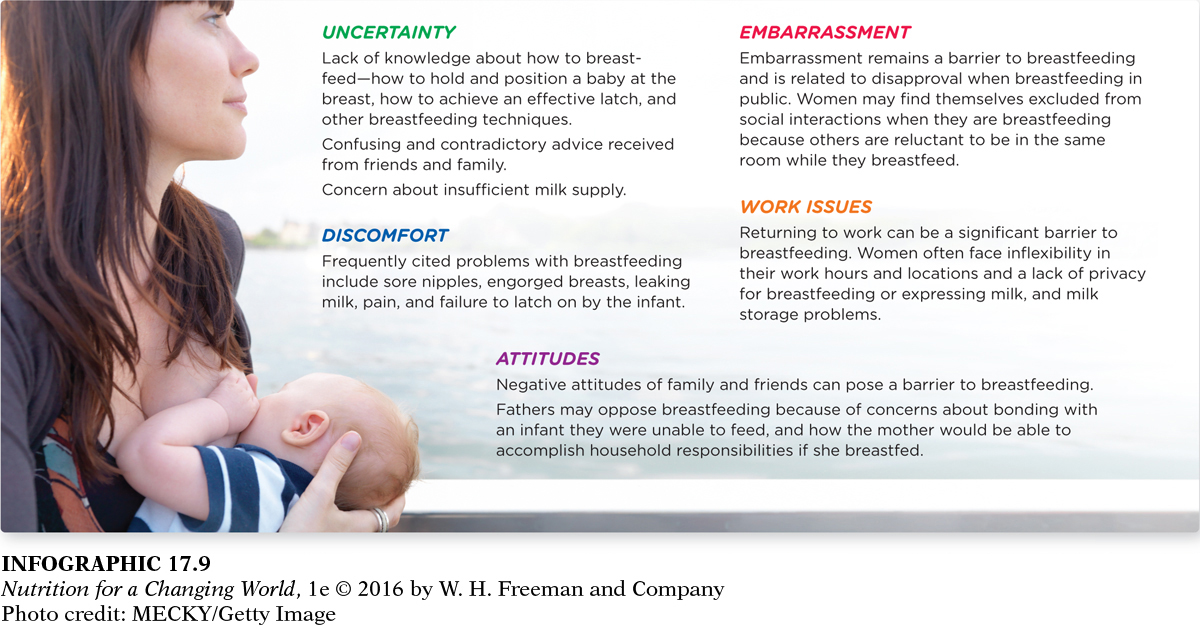NUTRITION DURING LACTATION
Women who are breastfeeding need to replenish their nutrient stores and remain healthy to produce enough nutrient-
There are a few physical conditions that preclude new mothers from breastfeeding their babies. These conditions include HIV/AIDS, herpes simplex or chicken pox lesions on one or both nipples, alcohol or drug addiction, nipples that have been removed and replaced, or cancer treated with cytotoxic drugs. Otherwise, most chronic conditions can be managed with drugs that are safe to take while breastfeeding. Despite the encouraging news that more women are breastfeeding, there are challenges that make breastfeeding difficult for some. (INFOGRAPHIC 17.9)

Question 17.4
 What ideas can you suggest to overcome each of these issues?
What ideas can you suggest to overcome each of these issues?
Many creative responses are appropriate to address issues of uncertainty, embarrassment, breastfeeding discomfort, work-